Pilots
The project’s deep renovation solutions have been demonstrated in three different types of buildings
- Multi-family residential dwellings
- Public non-residential buildings
- Rental private office buildings
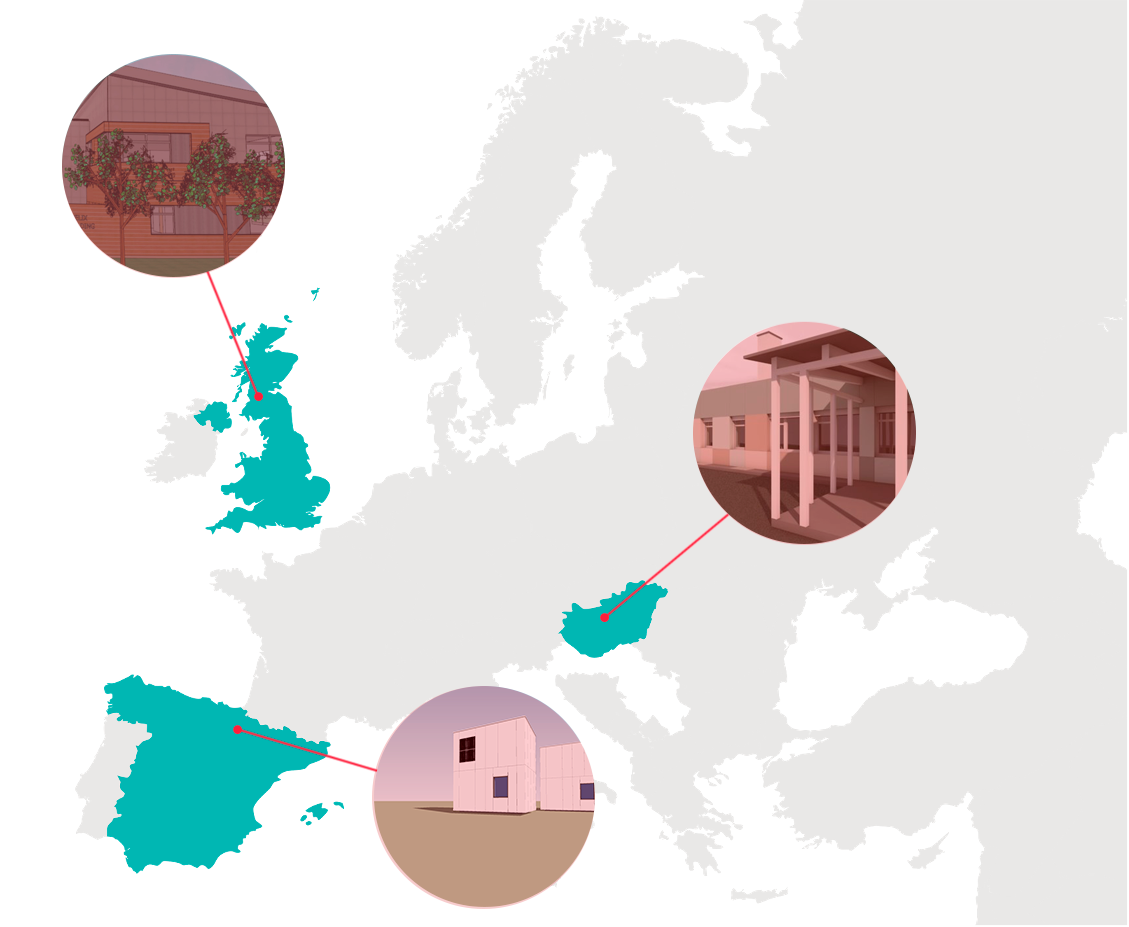
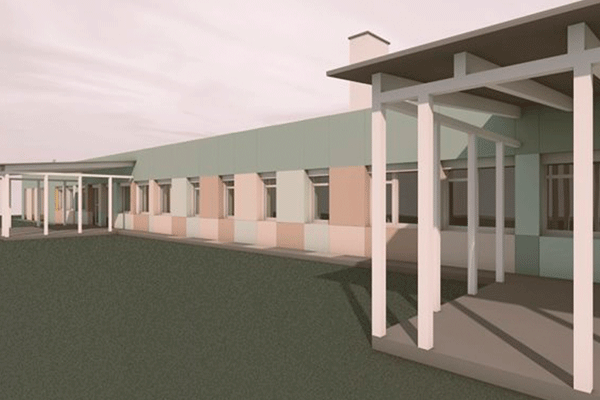
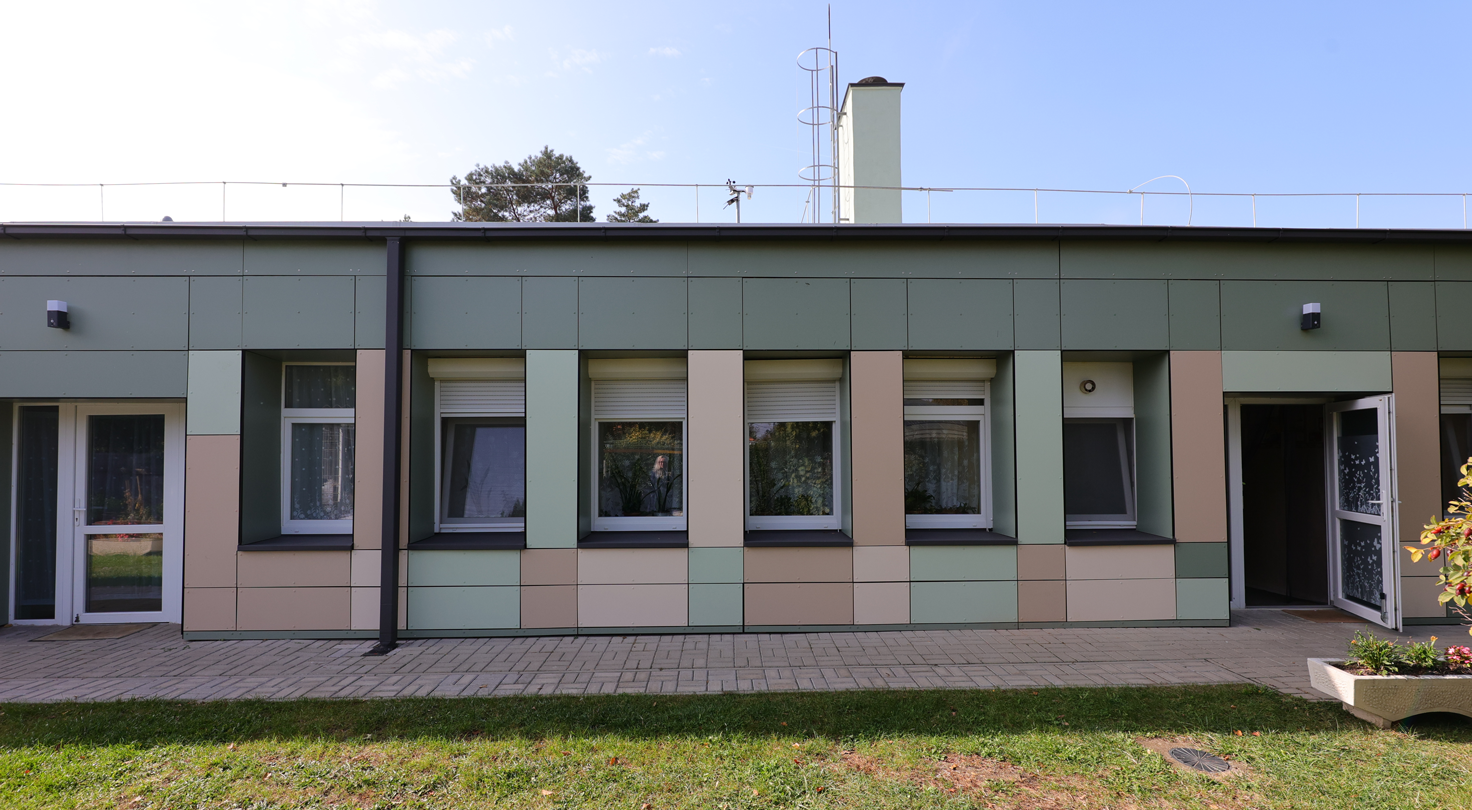
Public non-residential building
Zöld-Liget Kindergarten
Budapest 18th District, Hungary
Zöld-Liget Kindergarten was built in 1952 in Budapest’s suburban area, including four classrooms and supporting rooms. It consists of a one-story building with a small basement.
The current energy performance of the building is poor due to significant heat loss through the roof and walls.
In this pilot, StepUP technologies have been demonstrated for public authorities. The deep renovation intervention includes the installation of the Plug & Play Envelope System, StepUP Heating Solution, roof insulation, the installation of PV panels and the change of the heat distribution system.
Plug & play technologies’ impact simulation for dwellings
R&D facility and multi-functional building
Pamplona, Spain
Demonstration of StepUP Plug & Play technologies – a façade envelope and & cooling system – separately in two locations in the city of Pamplona, Spain.
The StepUP façade P&P solution have been deployed and validated in two-story building part of the University of Navarra R&D facilities. These facilities simulate real building spaces and serve to showcase the time required for the P&P envelope installation and its thermal performance impact on a residential building.
On the other hand, the StepUP Plug & Play active system solution, a PCM storage solution allowing flexible consumption of energy, together with PV panels, has been installed in an ACR Group’s multi-functional building with simultaneous heating and cooling needs.
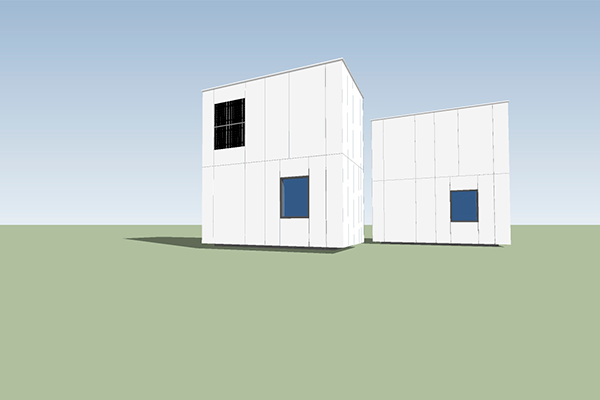
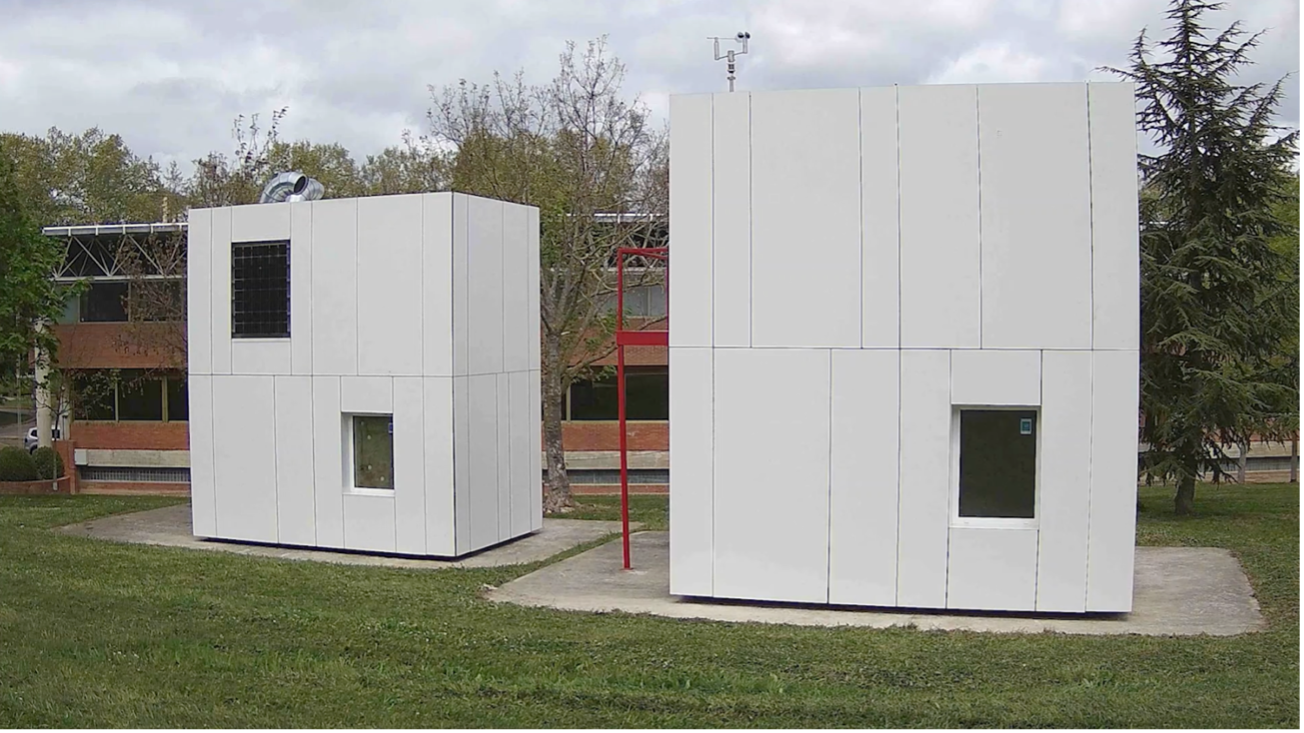
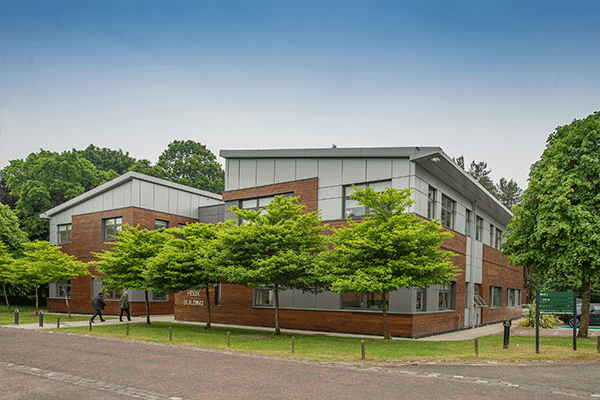
Rental private-office building
IES Helix Building
Glasgow, Scotland
IES headquarters office building was built after 2000. This building will serve to demonstrate a common case for missed opportunities in deep renovation in the European built environment: the long-term office lease.
SMEs often can refurbish offices, but do not share costs and benefits of a deep renovation effort with the owner – effort which would reduce operational and maintenance costs, while increasing comfort conditions and productivity, benefitting owner and tenant.
In this pilot, the office has been monitored to develop a stepped renovation plan to be reviewed for the implementation and validation of the project methodology and the development of financial schemes for deep renovation to value the improvements delivered and the potential for a co-investment approach. Virtual pilot activities have been fully aligned with the real pilots for the data collection and design phase.

 This project has received funding from the European Union’s Horizon 2020 research and innovation programme under grant agreement no. 847053.
This project has received funding from the European Union’s Horizon 2020 research and innovation programme under grant agreement no. 847053.
This website reflects only the author’s views. The European Climate, Infrastructure and Environment Executive Agency is not responsible for any use that may be made of the information it contains.
